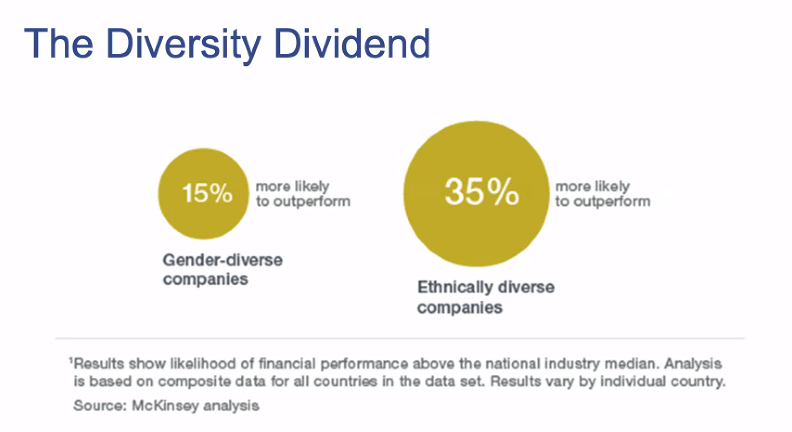Diversity Discussions: A session with social mobility charity ‘Leadership Through Sport & Business’
We recently held an insightful virtual round table session for some of our senior HR contacts. The session was moderated by Social Mobility Charity, ‘Leadership Through Sport & Business’. LTSB has transformed the lives of hundreds of young people from disadvantaged backgrounds over the past nine years whilst delivering value to major firms through their unique programmes.
During the session, LTSB took us through a case study with one of their partners, NatWest Bank, and described how Natwest has worked with several hundred young people across a range of finance, digital and technology roles across the UK.
Here are some of our key takeaways from the session:
The pandemic has exposed undeniable inequalities in our society like never before in recent memory.
We know that the public health crisis has deepened the divide in already challenged areas, such as the gender pay gap, or access to education for underprivileged youths, an issue known as ‘the digital divide’.
This challenge has been recognised by the government in ‘The Commission's report into racial and ethnic disparities in the UK’.
The report outlines four broad recommendations, namely:
- Build trust between different communities and the institutions that serve them
- Promote greater fairness to improve opportunities and outcomes for individuals and communities
- Create agency so individuals can take greater control of the decisions that impact their lives
- Achieve genuine inclusivity to ensure all groups feel a part of UK society
What is social mobility?
Social mobility refers to the shift in an individual's social status from one status to another. Today as many as 50% of leaders across a wide range of professions, from politics, media, music, law, and elite sports, attended private schools, although only 7% of the general population are privately educated. We need to create a society where your starting point does not dictate where you could end up in life.
The true measure of any society can be found in how it treats its most vulnerable members."
How diversity fits in the recruitment process
Diversity is a broad term and encompasses a variety of protected traits beyond just race and gender. A truly diverse workforce has a range of educational backgrounds, lived experiences, lifestyles and skills. When we talk about diversity in recruitment, we’re talking about a process that values merit and offers a fair assessment of all candidates. There are a number of different ways to encourage a diverse recruitment process, including:
Cast the net wide in your search process. A narrow search criteria, such as a specific degree from a preferable university will immediately exclude candidates that could be perfect for the role, and add value to the culture of your organisation.
Use blind CVs. This means removing any identifying information that is not directly associated with their abilities, such as name, address, age or educational establishments.
Ensure the interview panel reflects a range of people.
Make your job adverts gender neutral to attract the maximum applications, utilising tools like Gender Decoder.
The benefits of creating a more diverse working environment
Not only is building a diverse and inclusive workforce a moral imperative, but it is also a proven way to boost business revenue. Companies in the top quartile for gender diversity are 15% more likely to have financial returns above their national industry peers. Moreover, racially diverse teams outperform their less diverse competitors by 35%, thus the combined results of improving both racial and gender diversity is a 25% net increase in overall performance.
Diversity without inclusion is not enough
A diverse workforce, however, is not enough. Businesses that fail to leverage their diverse talent pool will not reap all the benefits which come from the various lived experiences. Inclusion involves bringing these diverse groups together in a constructive way. This commitment is what stimulates innovation.
The power of inclusive leadership
Moreover, research from Deloitte has found that inclusive leadership is essential. The behaviours of leaders in your business are deeply influential in driving positive sentiments around leadership. Managers and executives who were seen as being highly inclusive, also presented with stronger team performances, were perceived as better decision makers, and more collaborative.
Ultimately, it makes business sense to put equality, diversity and inclusion at the heart of your talent strategy. To find out more about Marks Sattin’s approach to EDI and to read our diversity promise, please visit our dedicated diversity and inclusion page.




